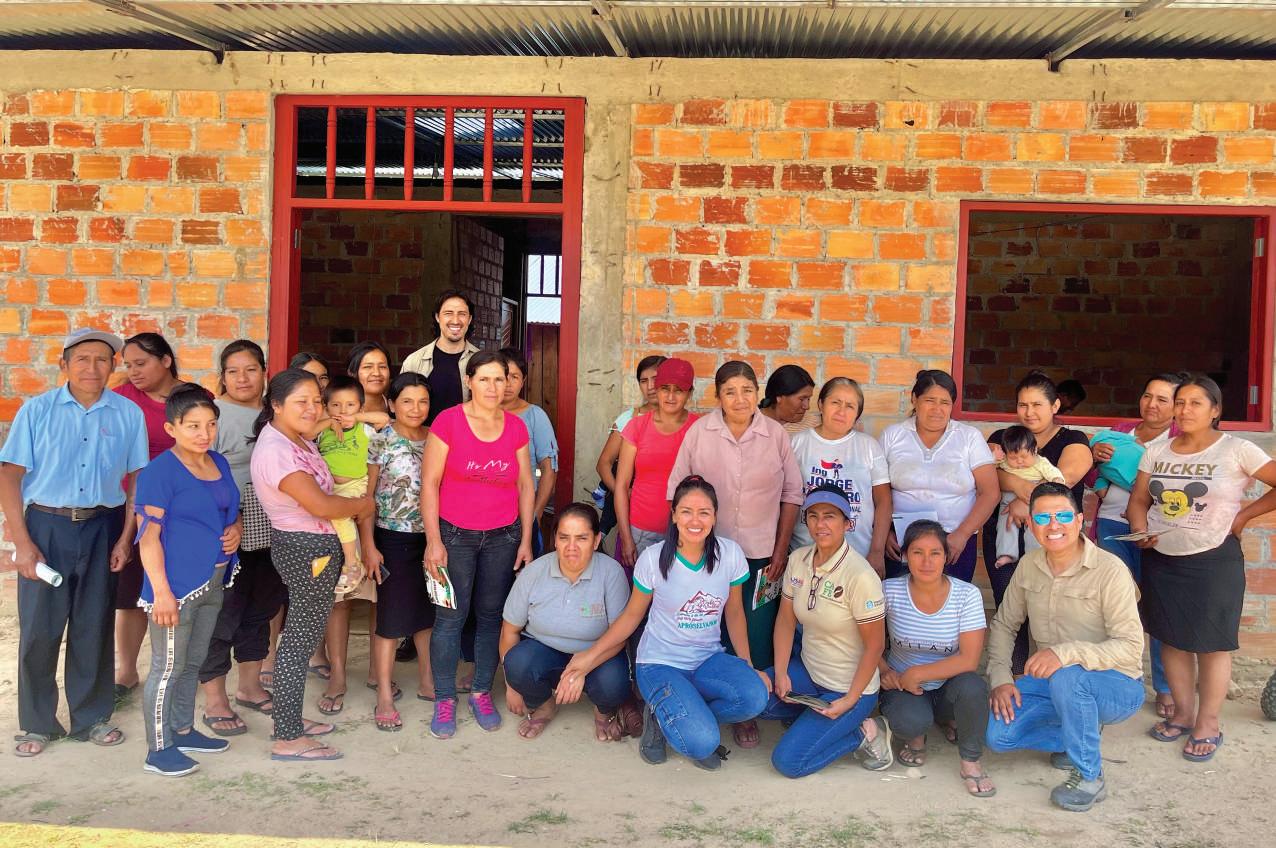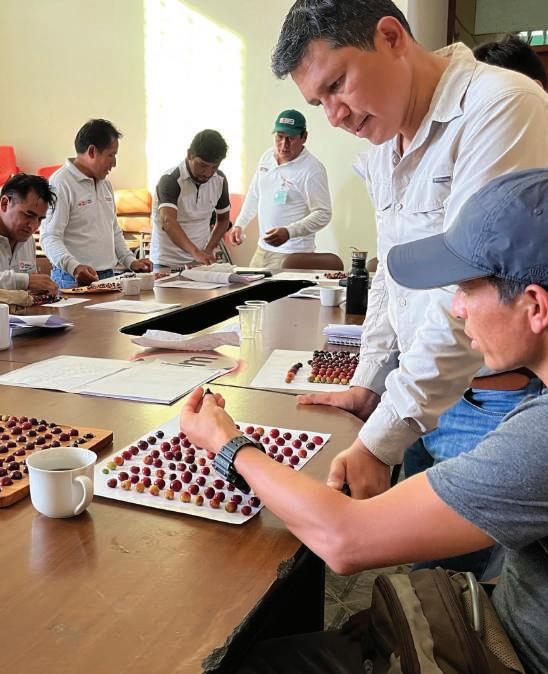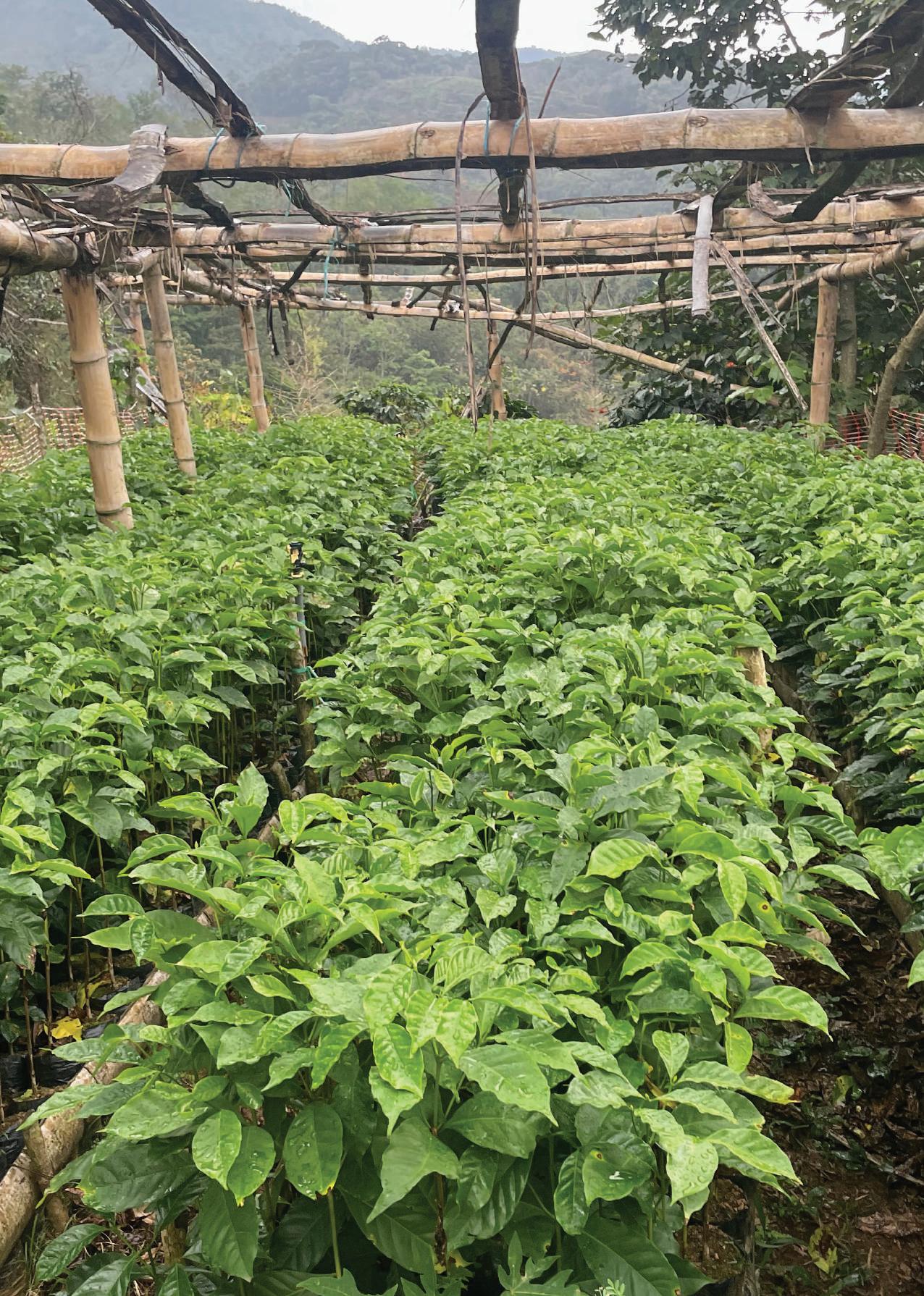
4 minute read
James Astuhuaman on Planning an Origin Trip
James is our go to guy for origin trips in Peru and during 2023 we connected him with green coffee buyer, Andrew Piper, from Java Roasting Co. in Ohio, USA. Andy is deeply invested in creating sustainable green coffee supply chains for his roastery and his trip to Peru was part of his journey in doing so. We asked James if he could explain how he went about organising a trip for Andy and how his experiences and relationships with people in coffee make it all possible.
MR: What was the process when planning a trip of origin with Andy, what made you decide where to visit?
Advertisement
JA: As someone deeply immersed in the coffee world for many years, I’ve had the privilege of getting to know numerous coffee producers across Latin America. Building relationships and collaborating with these organisations has given me invaluable insights into the industry. When planning the origin trip with Andy, I relied on my extensive network and shared vision of sustainability to select regions and cooperatives to visit, many of which I’ve worked closely with in the past. What guided my choices were their commitment to sustainability and their strong leadership and potential for growth, even among some relatively young organisations. These partners demonstrated a clear vision and empowered leadership, qualities I highly value in my collaborations. My deep familiarity with coffee-producing regions and ongoing work there made planning this trip much smoother. It was truly gratifying to introduce Andy to these producers and highlight the value of their efforts and their potential for long-term partnerships. My professional aim is to assist these organisations in expanding their markets and making a bigger impact, while also addressing sustainability issues and tackling the challenges posed by climate change.
MR: Can you explain your career and the work you have done that has allowed you to know Latin American coffee producers and regions?
JA: My journey in the coffee industry spans over 14 years, during which I’ve immersed myself in various facets of sustainable agriculture, particularly focusing on coffee and cacao production. Through my roles as a program manager and sustainability specialist, I’ve had the privilege of working directly with coffee producers across Peru and Latin America. My first role as a lead auditor for certification standards involved extensive field visits to coffee farms, providing me with invaluable insights into the challenges and opportunities faced by producers firsthand. Subsequently, I’ve spearheaded projects funded by both government and private entities aimed at enhancing the sustainability and resilience of coffee and cacao supply chains.
These initiatives have taken me to remote regions, allowing me to forge connections with many coffeeproducing communities and gain a deep understanding of their needs. Collaborating closely with producers, I’ve focused on improving productivity, quality, and market access, all while promoting sustainable practices and gender equality in the industry.
As a current independent consultant, I support coffee buyers and NGOs (Non Governmental Organisations) on market-aligned and climate-resilience development initiatives. Leveraging my expertise in sustainability strategies, I assist them in developing and implementing initiatives to strengthen supply chain resilience and mitigate climate change impacts. Whether conducting coffee research, designing educational programs, implementing agroforestry systems, or advising on carbon footprint measurement, my approach aligns with my commitment to fostering a more resilient and equitable coffee industry.
MR: From your trip with Andy, what were some of the challenges?
JA: Travelling with Andy was a fantastic experience, as we made a great team sharing a common vision for sustainability. Our journey was filled with rich interactions and insights gathered from conversations with coffee producers.
One of the main challenges during our trip was the vast distances we had to cover in Peru. With coffee-producing regions spread out across the country, visiting remote farms and communities meant long hours of travel and limited connectivity. Some locations were only reachable by driving for hours, making logistics complex and time-consuming. Despite the distances, we were determined to visit multiple organisations in different regions, which required careful planning and dedication.
Additionally, talking with coffee producers revealed gaps in understanding the market dynamics and value chain, posing a communication barrier for proposed initiatives. It was crucial to bridge this gap by explaining market structures and our role in the value chain, fostering a collaborative and inclusive approach to sustainability efforts.
Overall, the diversity of Peru’s coffee landscape presented both logistical and communication challenges, but also enriched our interactions and deepened our understanding of the complexities involved in sustainable coffee production.
MR: What did you learn from your trip with Andy about Peruvian coffee, the producers and their communities?
JA: Our trip showed us the incredible diversity of Peruvian coffee-growing communities, from indigenous groups to new cooperatives, each with its own story and aspirations. It became evident that while coffee farmers are resilient and resourceful, they face challenges in a complex industry. Farmers are eager to organise and improve, but there’s a pressing need to provide support and resources to empower them on their journey towards sustainability and competitiveness.
So, these visits showed the importance of fostering collaborative relationships and reimagining our approach to coffee production. However, our journey also highlights the need for a paradigm shift within the coffee industry.
Despite notable efforts, current strategies have often not addressed the fundamental challenges faced by producers. Climate change further increases these issues, disproportionately affecting those at the heart of coffee production. I think the entire value chain requires a coordinated effort, grounded in principles of collaboration and shared prosperity.
Drawing from my past experience with Twin Trading, I’ve seen firsthand the transformative power of marketaligned development initiatives. Yet, there remains a gap between investment strategies and the genuine needs of producers, highlighting the importance of empathetic engagement and tailored support.
Moreover, sustainability efforts must prioritise the overall well-being of producers, nurturing a sense of value and appreciation for the tireless efforts of coffee farmers within the market. By fostering motivation and empowerment, we can drive significant change within coffee communities, promoting transparency and collaboration, which, in my opinion, is the best approach to building strong relationships.
MR: Anything else you’d like to share?
JA: This journey highlights the interconnectedness of all actors within the coffee supply chain and the imperative of collective action toward a more equitable and sustainable future. There is an inherent connection between market involvement, producer encouragement, and sustainable development that underscores the importance of fostering transparent and mutually beneficial relationships. It’s a process that calls for empathy, innovation, and dedication to empowering producers and ensuring the future of coffee.








